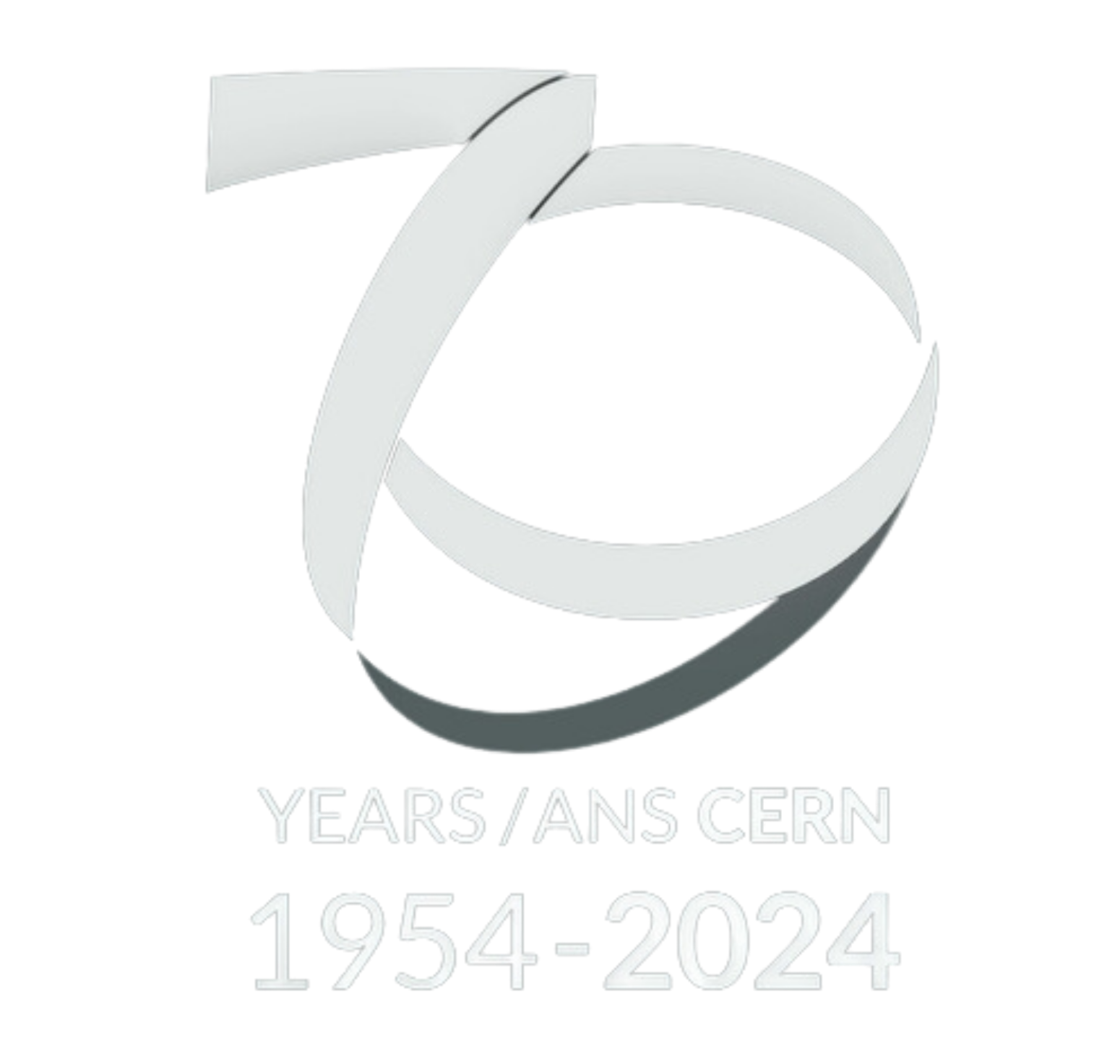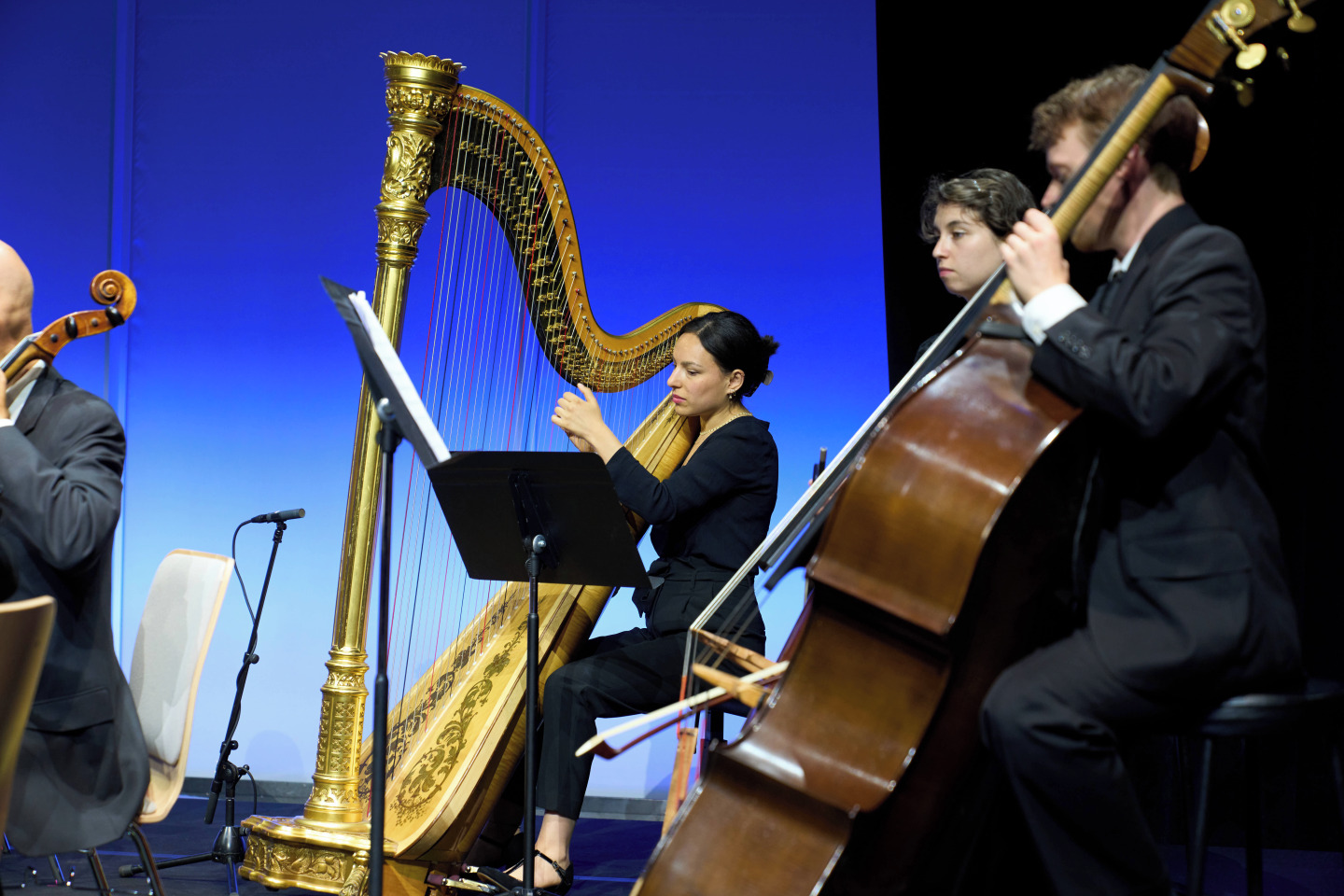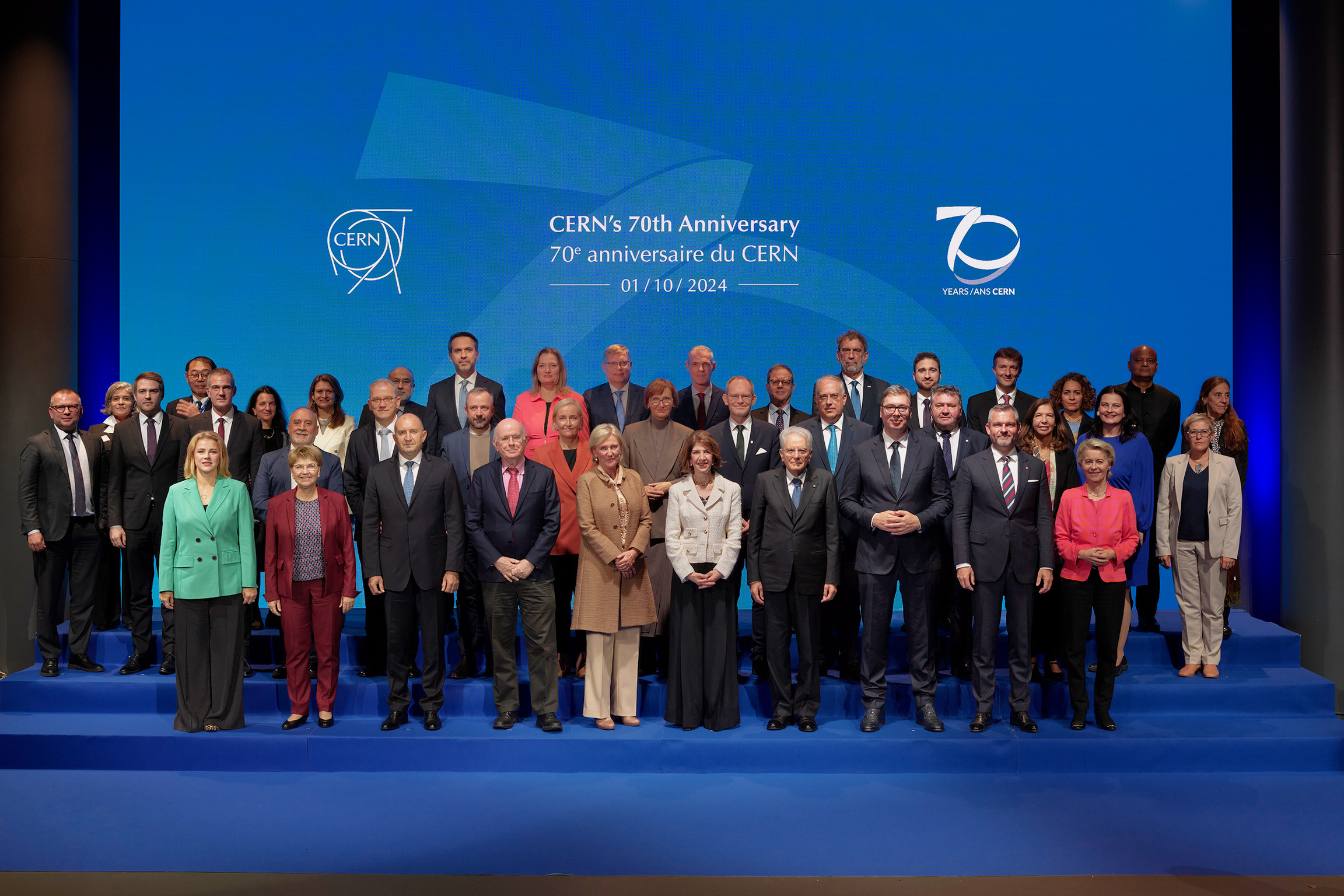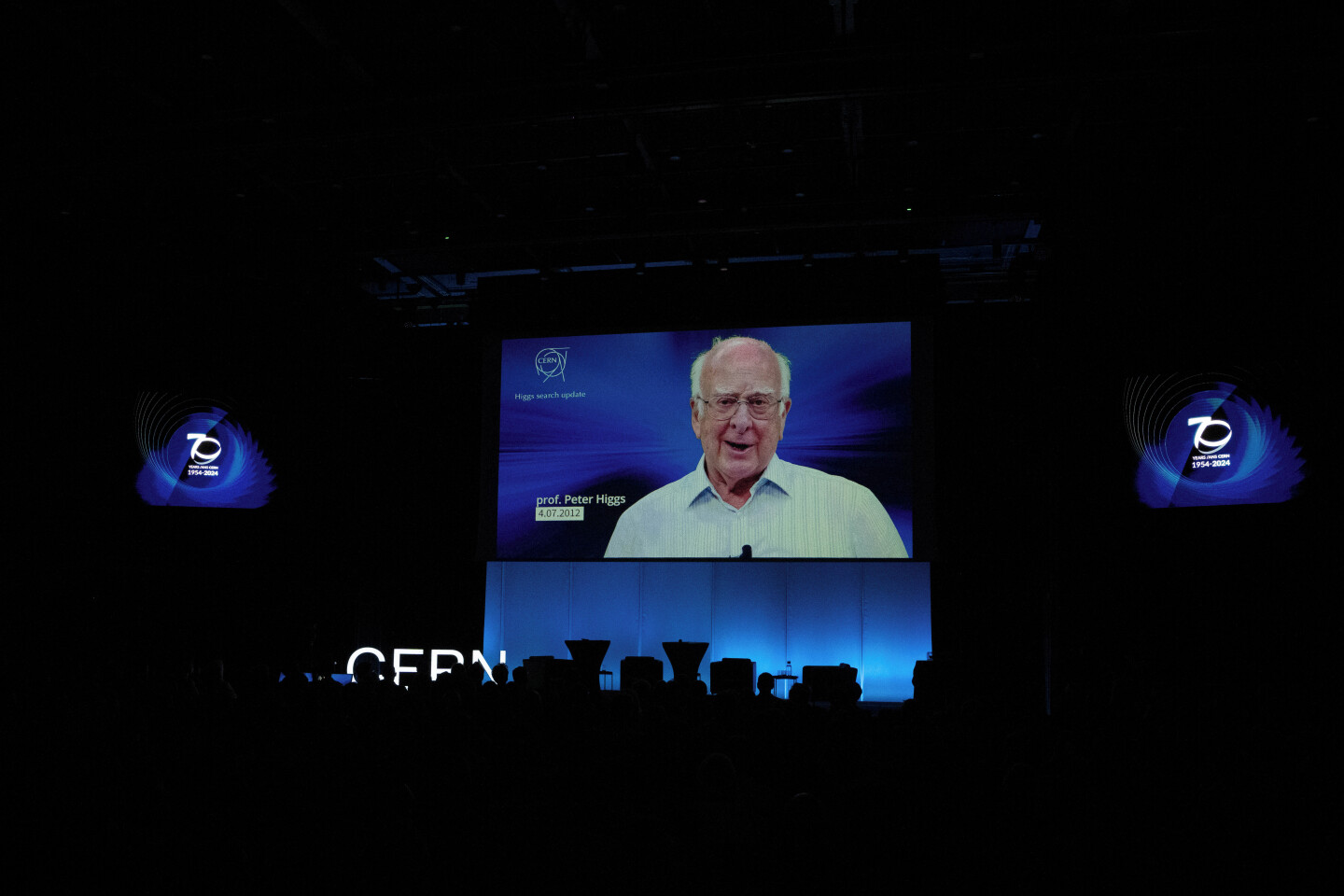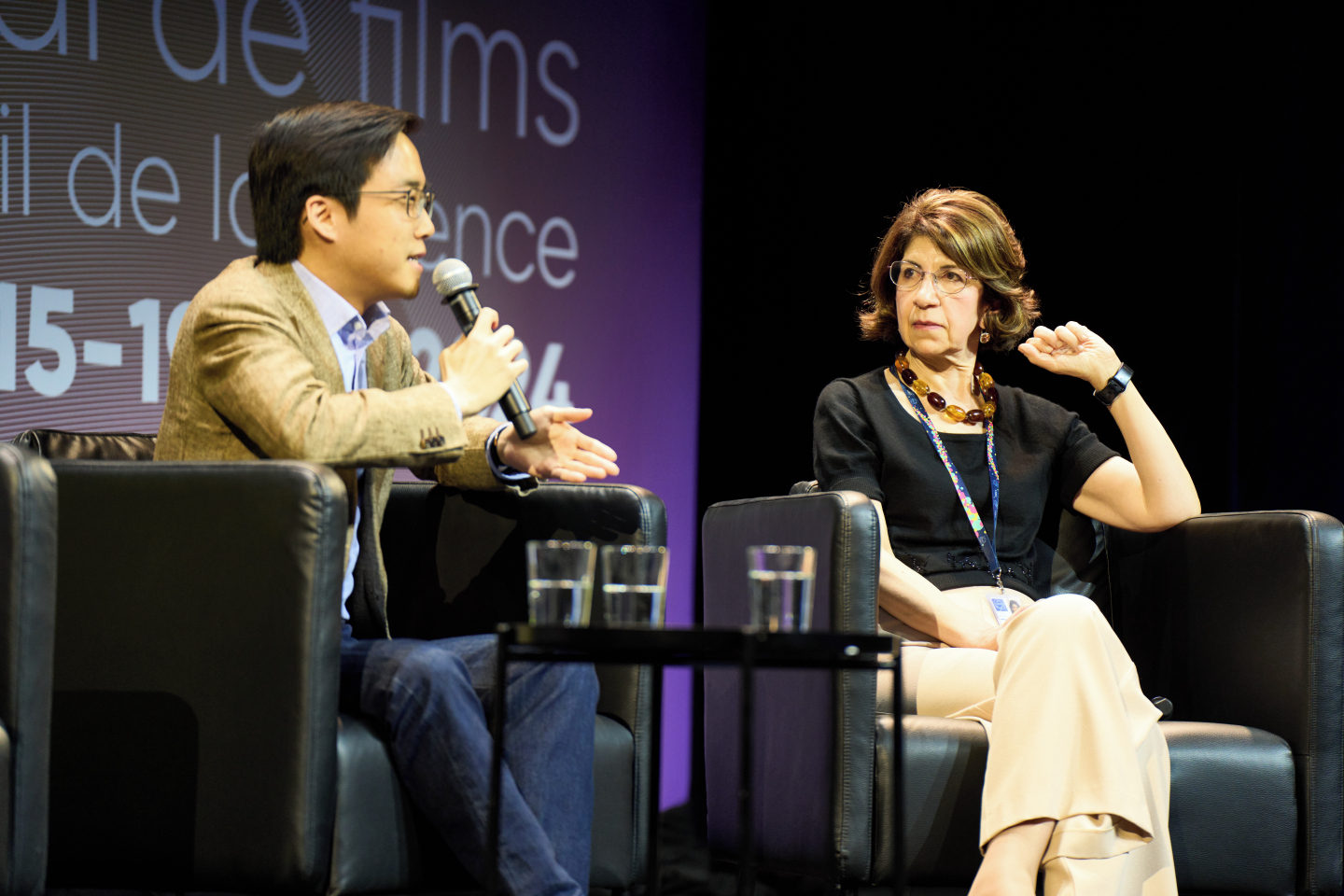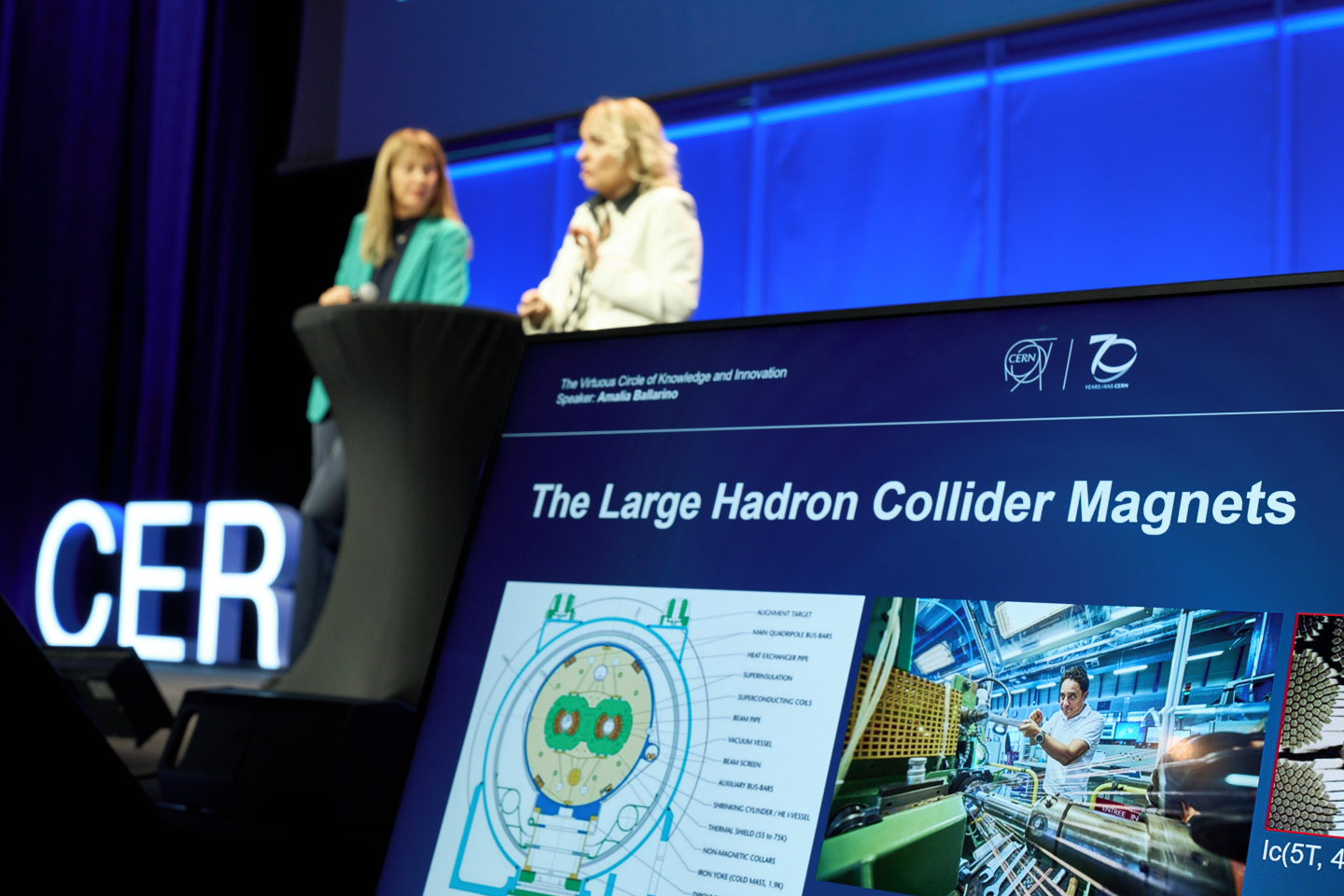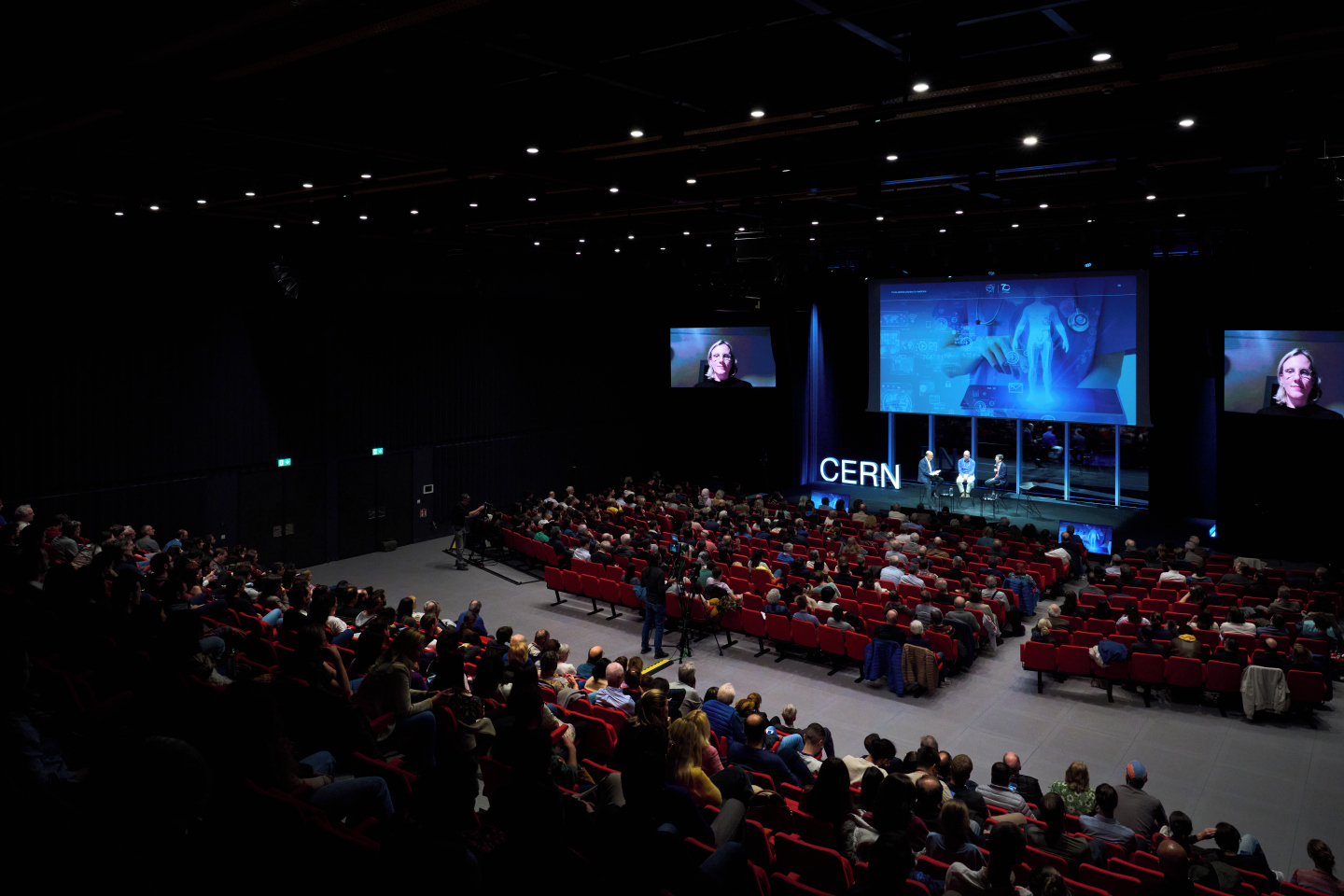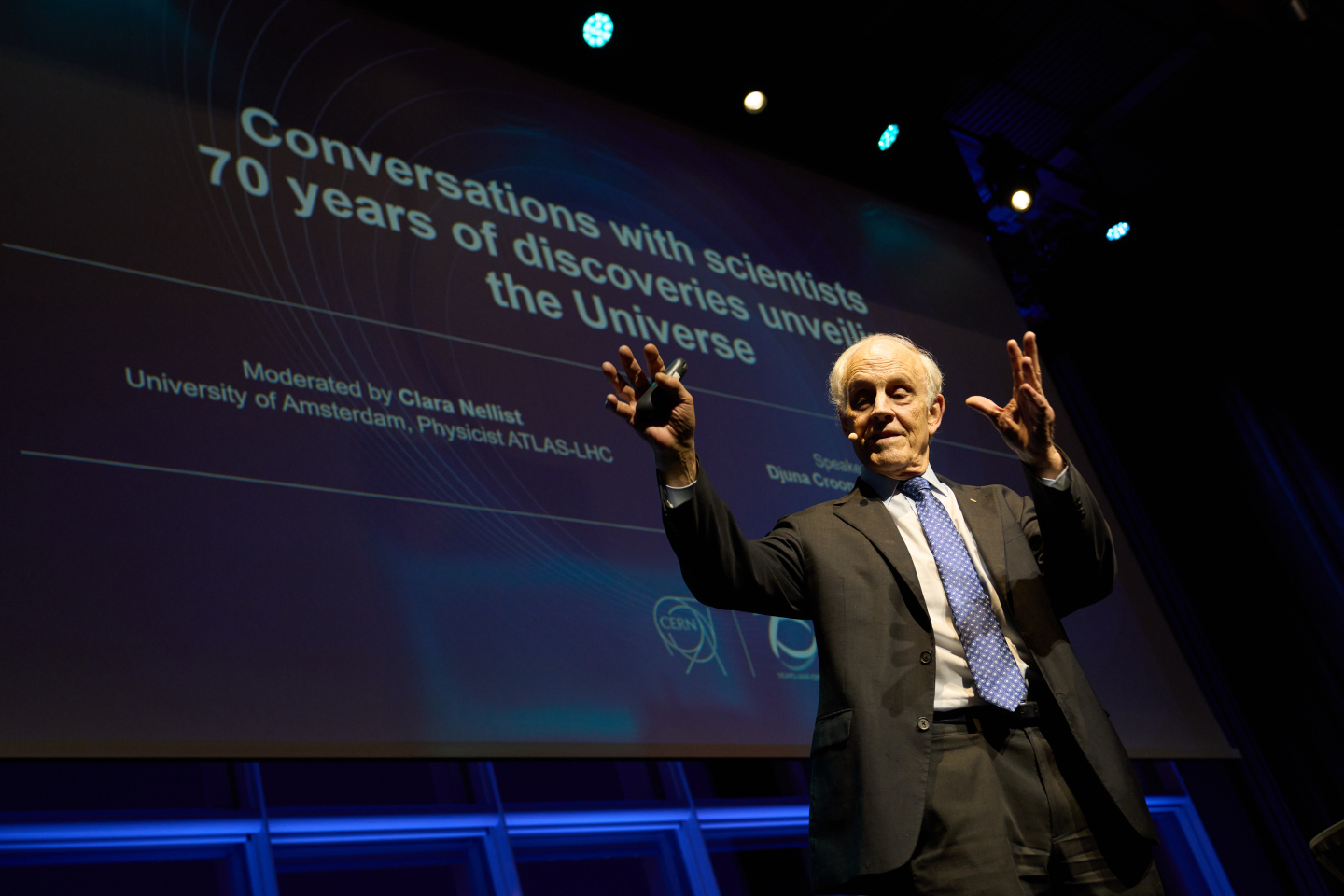Over the past 100 years, physics has advanced our understanding of nature to an unimaginable degree. The fundamental laws governing many of the building blocks of the Universe have been discovered, and the evolution of the Universe can be traced back 13.8 billion years to almost the beginning: the Big Bang.
Physicists have built laboratories spanning tens of kilometres to study nature at the smallest scales and sent telescopes into space to gather information about different forms of matter and energy. How much do we still not know about the Universe? What mysteries remain to be solved?
During the event, you were taken on a journey through space, time, and the history of ideas in modern physics: what we know and what we do not know. Through the eyes of renowned physicists, you were exposed to some of the greatest mysteries of the Universe. Why is there more matter than antimatter? What are dark energy and dark matter? How can we unify all the forces? What future experiments will reveal nature’s deepest secrets? Is the Universe made of vibrating strings? Is the Universe holographic? What are black holes made of? Could there be more than one Universe?
We were accelerated into a mind-boggling physics experience at CERN. Thank you for joining us for this fifth public event, held in collaboration with the Strings 2024 conference, celebrating the Laboratory’s 70th anniversary.
There was a live performance by the Orchestre des Nations of “Open Questions”, an original music piece for string orchestra by Domenico Vicinanza based on the sonification of scientific data, under the direction of Antoine Marguier.
Speakers
70 years of discovery

Jácome (Jay) Armas
Assistant professor at the UvA-Institute of Physics and coordinator of the Dutch Institute for Emergent Phenomena
| Bio |
Jácome (Jay) Armas is an assistant professor in theoretical physics at the University of Amsterdam, coordinator of the Dutch Institute for Emergent Phenomena, and member of the Institute for Advanced Study in Amsterdam. Armas is also an external associated professor at the Niels Bohr Institute in Copenhagen. He studied at University of Aveiro, Trinity College Dublin as well as KU Leuven and completed his masters at the University of Cambridge. Following a PhD at the Niels Bohr Institute in Copenhagen, he held postdoctoral positions at the University of Bern and Université Libre de Bruxelles. Armas holds degrees in engineering, mathematics, philosophy and theoretical physics. His research focuses on different aspects of string theory, black holes and fluid dynamics with applications to high-energy physics, astrophysics, hard, soft and biological matter as well as on complex systems. In addition to his research activities, Armas established Science & Cocktails, the international science outreach platform and event series. He is involved in various science outreach initiatives ranging from dance performances, through theatre plays, to art installations. His recent book, Conversations on Quantum Gravity, addresses the question: how far are we from a theory of everything that combines all the forces of nature, including gravity?
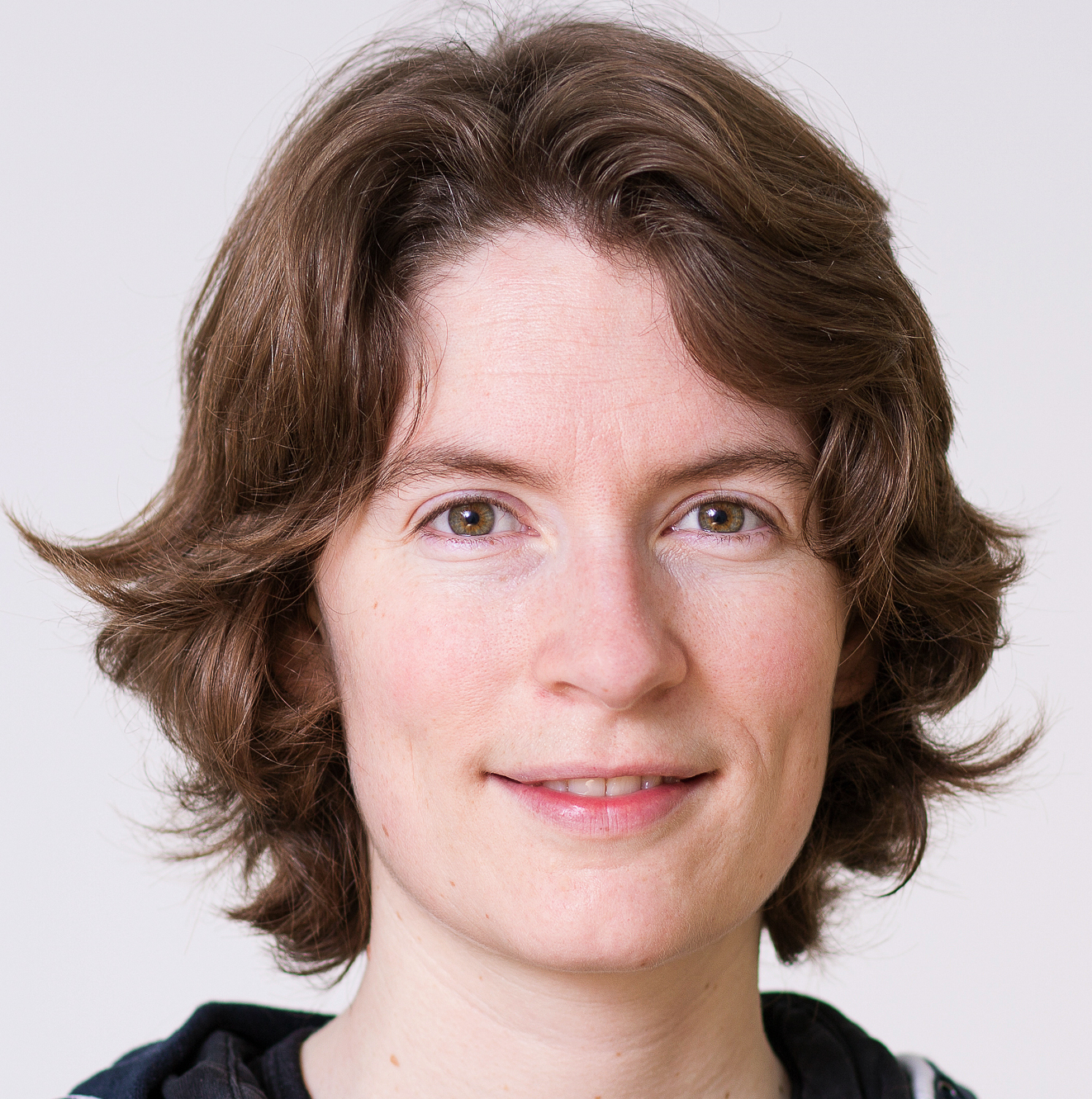
Valerie Domcke
Theoretical physicist, Theory Department, CERN.
| Bio |
Valerie Domcke graduated at DESY (Hamburg, Germany) in 2013 and was a postdoctoral researcher at SISSA (Trieste, Italy) and APC (Paris, France) before joining the CERN Theory Department as a staff scientist in 2020. She is a theoretical physicist most known for her works on early universe cosmology and gravitational waves.
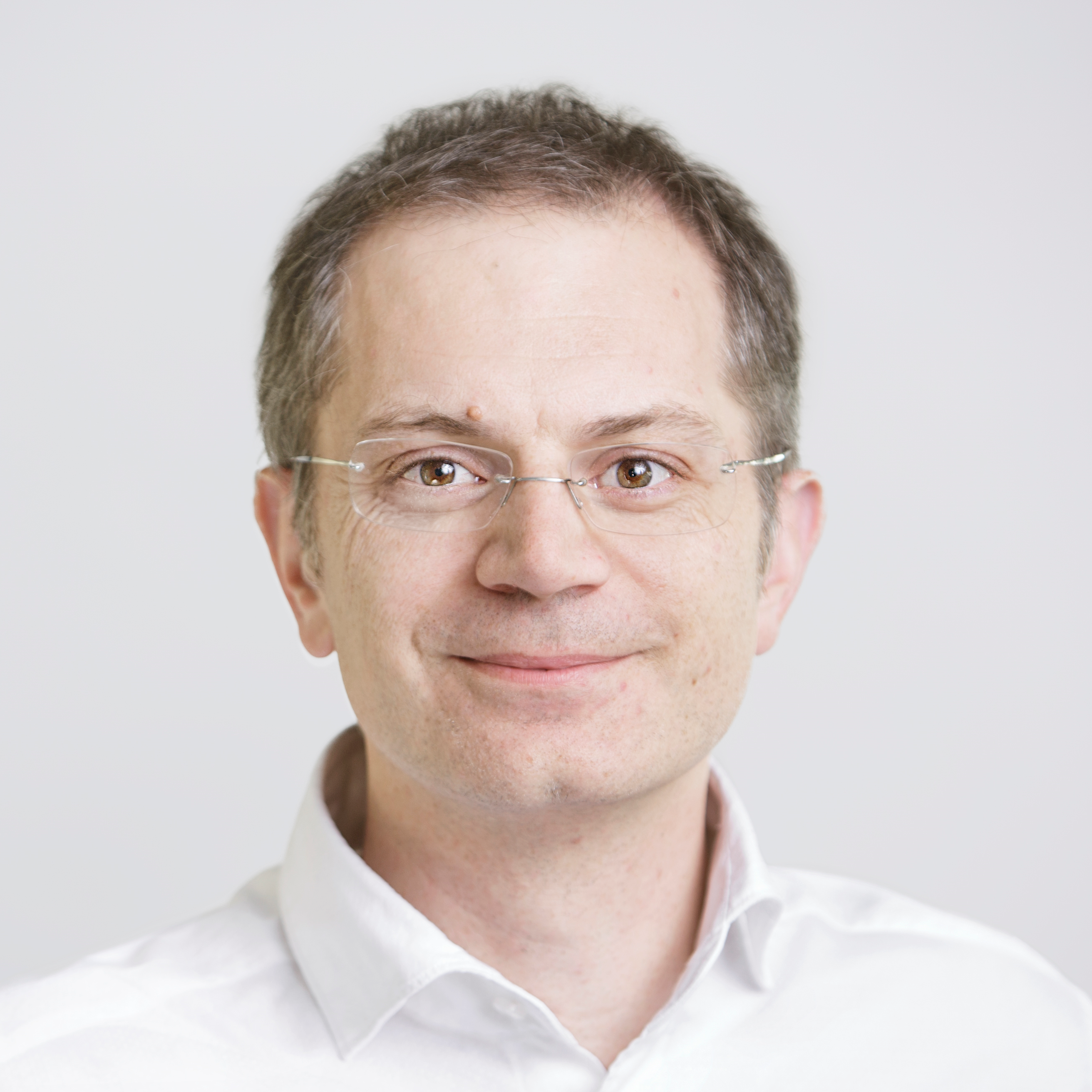
Christophe Grojean
Member of the DESY theory group in Hamburg and professor at the Humboldt University in Berlin.
| Bio |
Christophe Grojean is a member of the DESY theory group in Hamburg and professor at the Humboldt University in Berlin. He started his research work in theoretical high energy physics at the French research organisation CEA in Saclay and got his PhD from Orsay University in 1999. After two years at the University of California in Berkeley he returned to Saclay as a staff scientist, followed by a stay at the University of Michigan in Ann Arbor as a visiting professorship and a seven-year employment at CERN. In autumn 2012, he joined the Institut de Fisica d’Altes Energies at Universitat Autonoma de Barcelona as an ICREA Research Professor before moving to Hamburg and Berlin in 2015. Christophe Grojean has worked on various topics in particle physics beyond the Standard Model. He is a specialist in the physics and the dynamics of the Higgs boson and its possible various incarnations. He has worked in close contact with experimentalists to establish the profile of this new particle. He has also been involved in various working groups to define the physics case of the next colliders after the LHC and since 2022, he is coordinating the activities of the Physics, Experiment and Detector group studying the feasibility of the large of next big project at CERN, the Future Circular Collider.
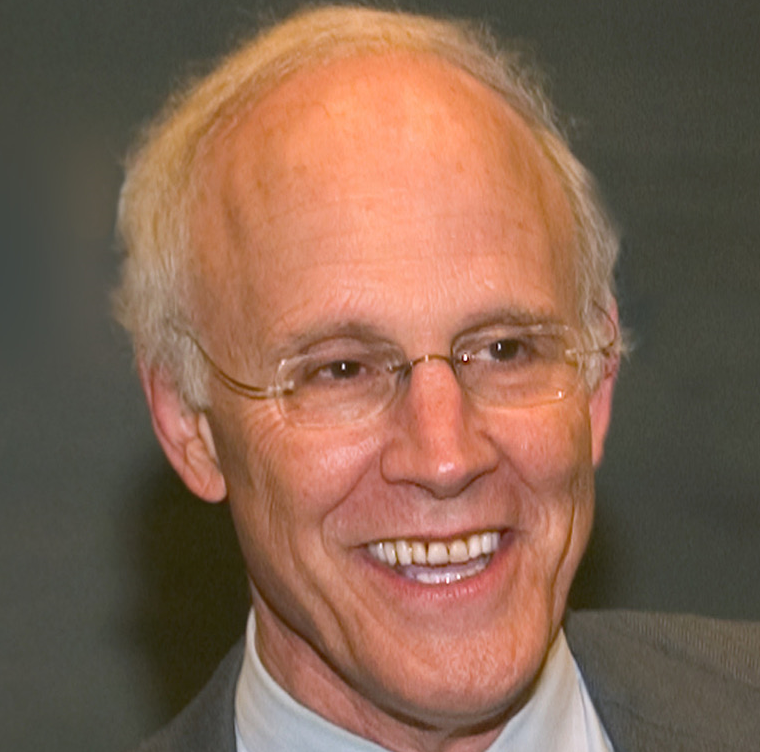
David J. Gross
Chancellor’s Chair professor of theoretical physics and former director of the Kavli Institute for Theoretical Physics (KITP) at the University of California, Santa Barbara.
| Bio |
David J. Gross is the Chancellor’s Chair professor of theoretical physics and former director of the Kavli Institute for Theoretical Physics (KITP) at the University of California, Santa Barbara. He received his Ph.D. in 1966 from the University of California, Berkeley. Before joining KITP, he was the Thomas Jones professor of mathematical physics at Princeton University. Gross was awarded the 2004 Nobel Prize in Physics (with Politzer and Wilczek), “for the discovery of asymptotic freedom in the theory of the strong interaction.” Other awards include: Sakurai Prize, MacArthur fellowship, Dirac Medal, Oskar Klein Medal, Harvey Prize, High Energy and Particle Physics Prize (European Physical Society), Grande Médaille d’Or (French Academy of Sciences). Memberships include: National Academy of Sciences, American Academy of Arts and Sciences, American Philosophical Society, Indian, Chinese and Russian Academies of Science. In 2020, he became Past President of the American Physical Society.
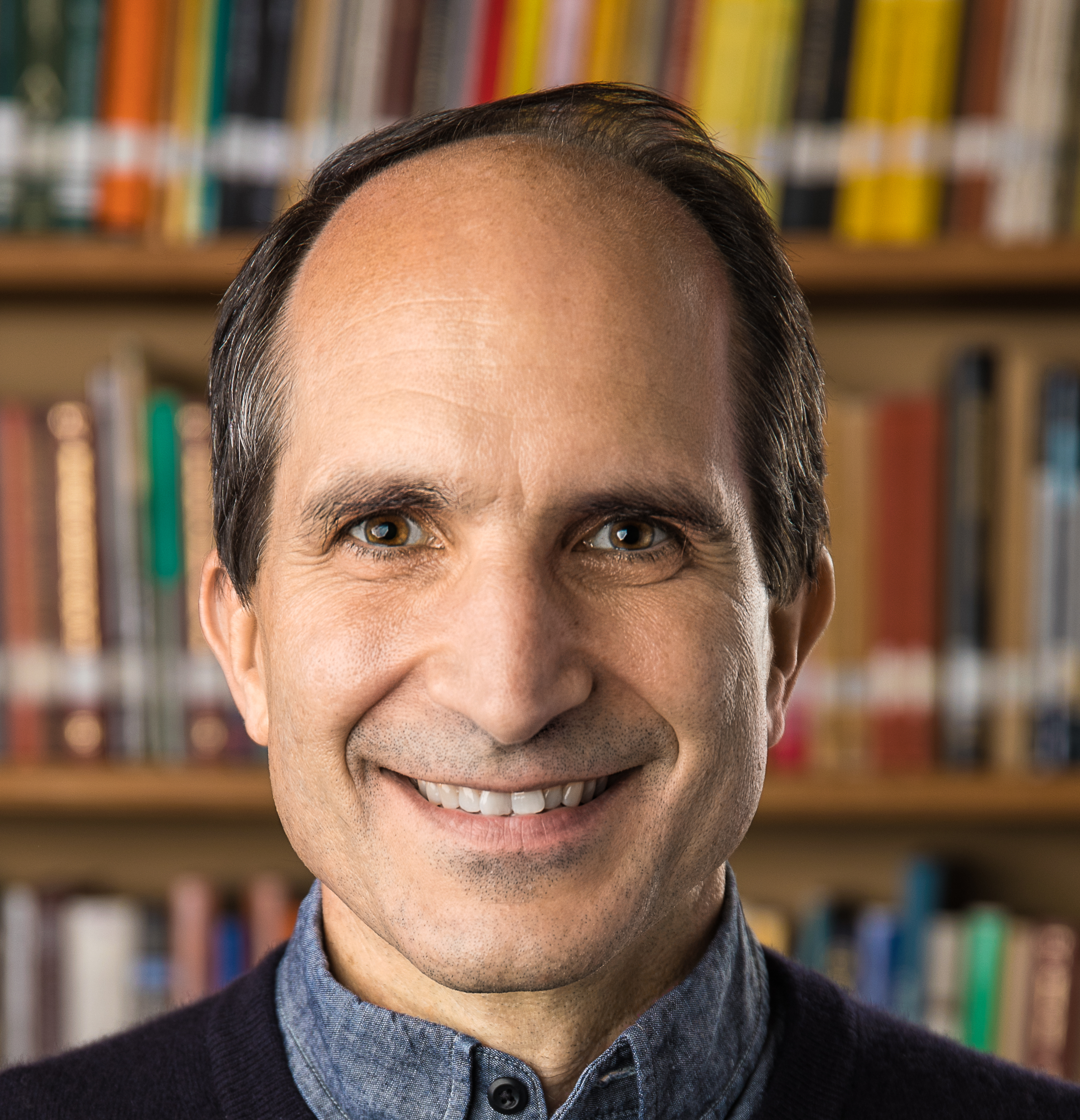
Juan Maldacena
Carl Feinberg professor at the Institute for Advanced Study in Princeton.
| Bio |
Juan Maldacena is the Carl Feinberg professor at the Institute for Advanced Study in Princeton, New Jersey, USA. He was born in Buenos Aires, Argentina, in 1968. He graduated from the Instituto Balseiro in Argentina in 1991. He received a Ph.D. from Princeton University in 1996. He was then a professor at Harvard before joining the Institute in 2001. His research interests include quantum field theory, quantum gravity and string theory. He has been studying the connection between quantum systems and gravity. He is a member of the National Academy of Sciences and the American Academy of Arts and Sciences. His awards include the Dannie Heineman prize, the ICTP Dirac Prize, and the fundamental physics prize.
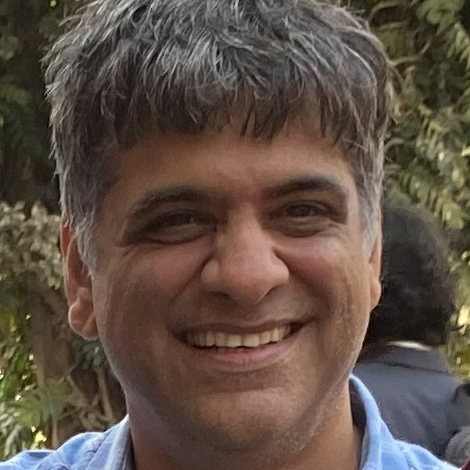
Shiraz Minwalla
Distinguished Professor in the Department of Theoretical Physics at Tata Institute of Fundamental Research.
| Bio |
Shiraz Minwalla was an undergraduate at the Indian Institute of Technology, Kanpur, a Phd student at Princeton Univerity, a Junior Fellow at the Harvard Society of Fellows and an Assistant Professor at Harvard University, before moving to the Tata Institute of Fundamental Research. At TIFR he holds the position of `Distinguished Professor’ of physics. Prof. Minwalla has worked on Quantum Field theory, Gravity and String theory. In particular, he has co-discovered the `fluid gravity’ correspondence, a surprising connection between Einstein’s equations of gravity and relativistic generalizations of the Navier-Stokes equations of fluid dynamics. Prof. Minwalla’s work has been recognized by several awards including the New Horizons Prize, the Infosys Prize, the TWAS Award, the Bhatnagar Award, the inaugural Nishina Asia Award, and the ICTP Prize.
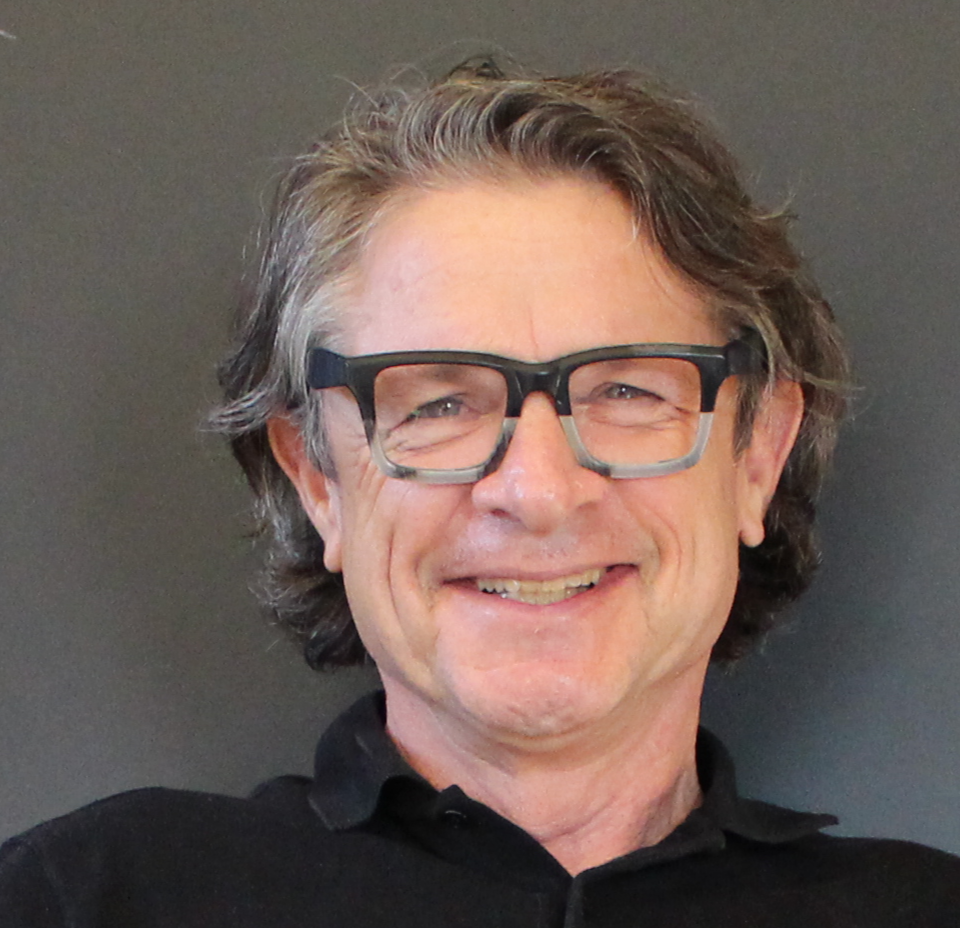
Andrew Strominger
Gwill E. York Professor of Physics at Harvard University.
| Bio |
Andrew Strominger is a renowned theoretical physicist and the Gwill E. York Professor of Physics at Harvard University. He earned his PhD at MIT in 1982 and served on the faculty at the University of California, Santa Barbara before joining the faculty at Harvard in 1997. Prof. Strominger has made significant contributions to the understanding of quantum gravity, string theory, general relativity, black holes, astronomy and pure mathematics. His notable work includes the discovery of Calabi-Yau compactification of string theory, the Strominger System for non-Kahler geometry, the holographic computation of the Bekenstein-Hawking entropy for black holes in string theory, the equivalence of soft theorems, asymptotic symmetries and the gravitational memory effect, the observational predictions of new gravitational memory effects and the fine structure of photon rings around black holes. He is a member of the BHEX collaboration now proposing a satellite mission to confirm the photon ring predictions. Prof. Strominger has received numerous honors and awards for his research, including the Eisenbud Prize from the American Mathematical Society, the Dirac Medal, the Oskar Klein Medal, the Dannie Heineman Prize, the Physics Frontier Prize and the Breakthrough Prize in Fundamental Physics.
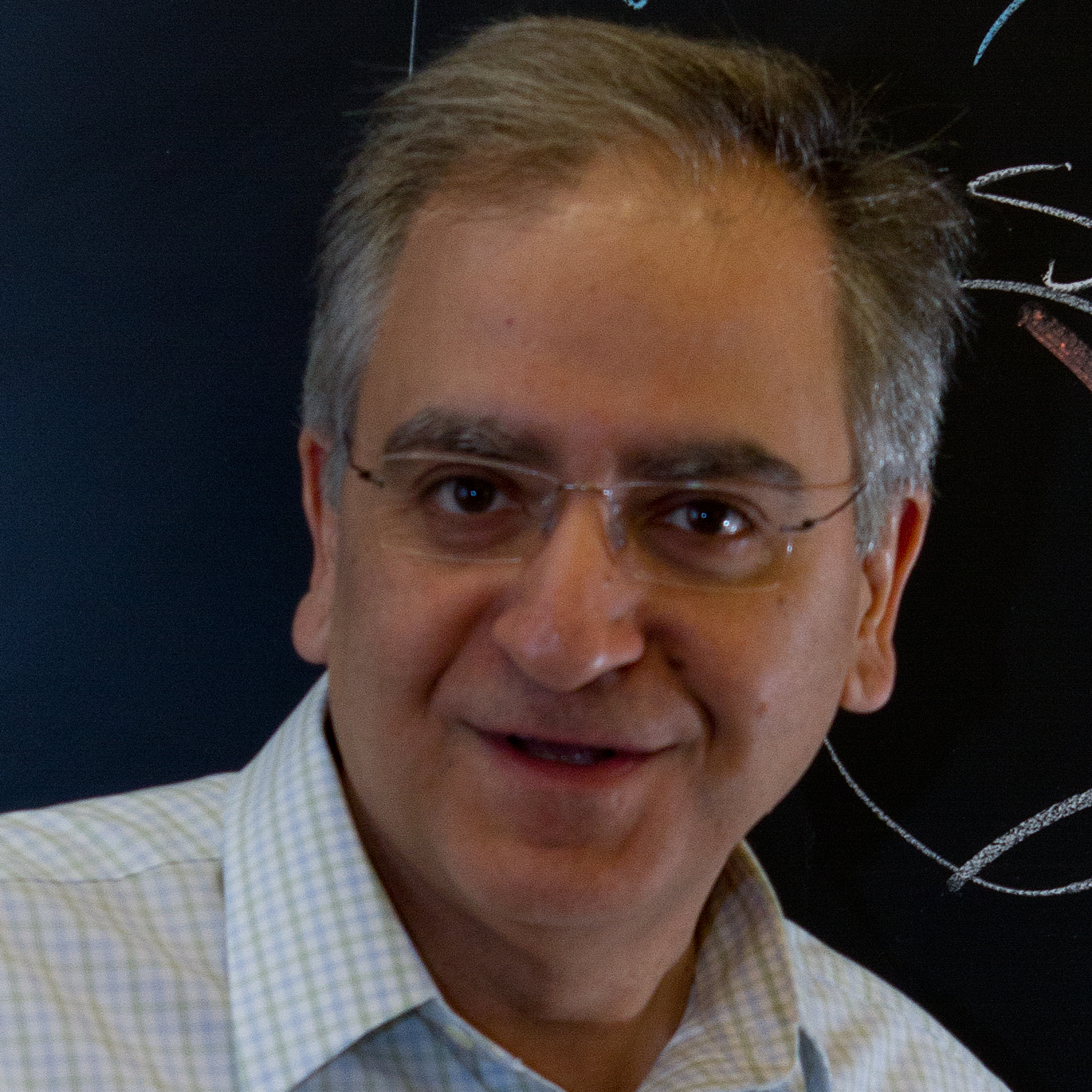
Cumrun Vafa
Hollis Professor of Mathematicks and Natural Philosophy and Chair of the Physics Department, Harvard University..
| Bio |
Cumrun Vafa is the Hollis Professor of Mathematics and Natural Philosophy in the Physics Department at Harvard University, where he does research and teaches theoretical physics since 1985. Professor Vafa is world-renowned for his groundbreaking work in string theory and the mathematical technology needed to explore this field. He is one of the founders of the duality revolution in string theory which has reshaped our understanding of the fundamental laws of the universe. He has uncovered mysteries of black holes and is the founder of `F-theory’ which is one of the most promising directions in connecting string theory solutions known as the `string landscape’ to particle physics. His ideas related to apparently consistent, but ultimately inconsistent, theories of quantum gravity which he initiated in the `swampland’ has helped narrow down the vast landscape of solutions to string theory. Professor Vafa has received numerous prizes and recognitions for his work on theoretical physics including the 2017 Breakthrough Prize in Fundamental Physics, the 2008 Dirac Medal of ICTP and prizes for his work on mathematical physics from American Mathematical Society, as well as American Physical Society. He is a member of National Academy of Sciences as well as the American Academy of Arts and Sciences. He is the author of the book Puzzles to Unravel the Universe, which explores fundamental laws of physics through fun mathematical puzzles.
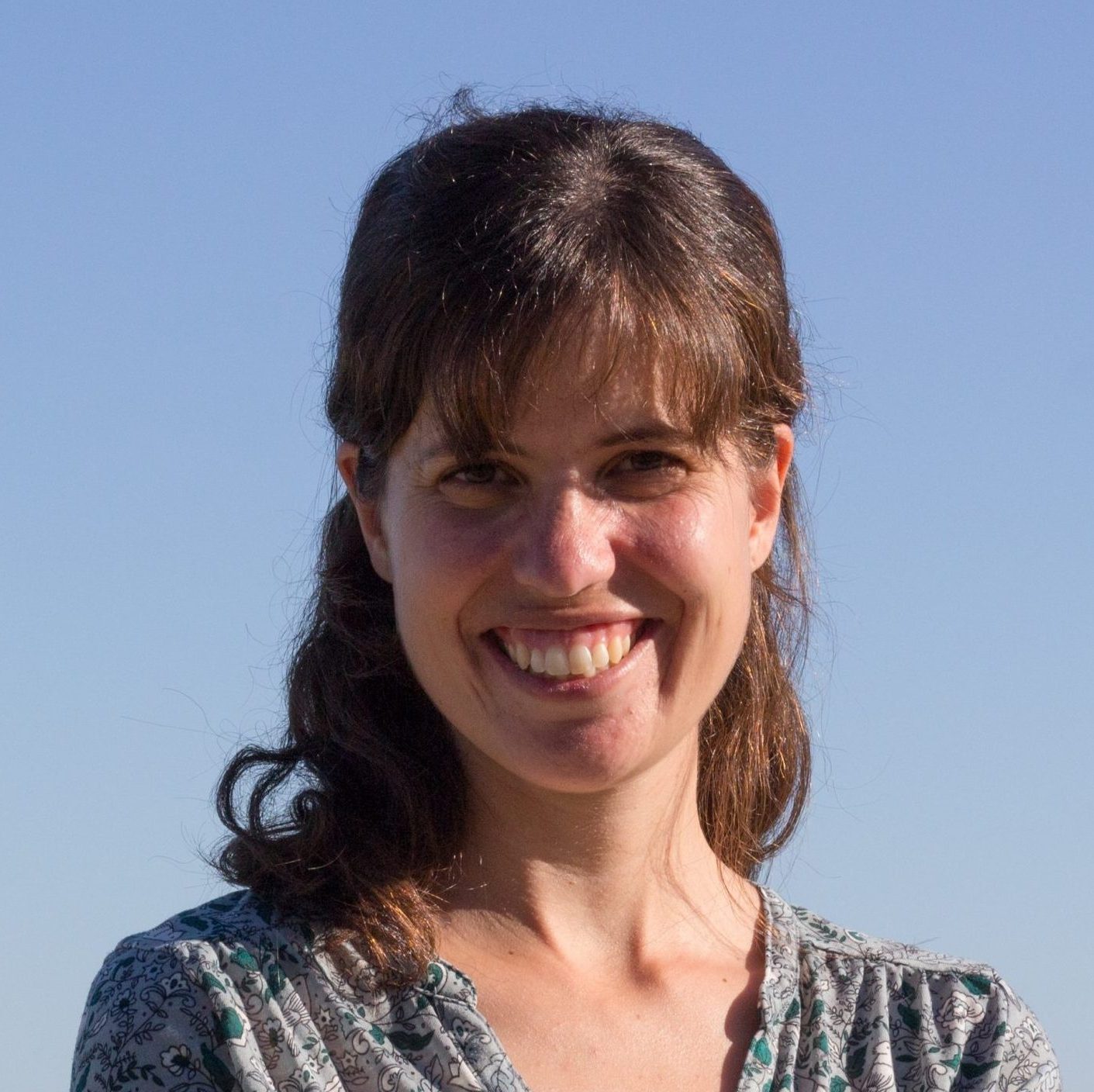
Irene Valenzuela
Theoretical physicist, Theory Department, CERN.
| Bio |
Irene Valenzuela is a theoretical physicist currently working as a junior staff member at the CERN Theory Department. She obtained her PhD in Theoretical Physics at Universidad Autonoma de Madrid with an extraordinary award in 2015. After that, she held postdoctoral positions at the Max Planck Institute for Physics (Munich), Utrecht University, Cornell University and Harvard University. In 2021 she started a tenure-track position at the Institute of Theoretical Physics UAM-CSIC in Madrid, funded by the “Ramon y Cajal” grant, currently on leave while at CERN. Her research focuses on the interplay between Quantum Gravity (more concretely, String Theory), Particle Physics, and Cosmology. She is a leading figure in the research field known as the “Swampland program”, which aims to determine the constraints that Quantum Gravity imposes at low energies. She has received a prestigious ERC Starting Grant 2021 to lead a research group dedicated to investigating these quantum gravity constraints. Her outstanding early career trajectory has been recognized by the Award for Young Investigator in Theoretical Physics 2021 by the Royal Spanish Society of Physics, the ICBS Frontiers of Science Award in 2023, and the FRACE Award Joven Talento Cientifico Femenino by the Real Spanish Academy of Sciences in 2023. She has also received the ATRAE Spanish grant and has been appointed as a member of the Spanish Young Academy.

Orchestre des Nations (ODN)
Antoine Marguier – director
Domenico Vicinanza – composer
| Bio |
Orchestre des Nations (ODN) is a top-level, one-of-a-kind ensemble composed of outstanding amateur musicians from all over the world brought together by their dreams of playing in a professional-level orchestra under the baton of a world-class conductor, Antoine Marguier. The mission of the ODN is to foster peace and dialogue between cultures. The ODN forms an essential bridge between the international and local communities that make up the unique fabric of Geneva, combining orchestral music with humanitarian initiatives and making classical music accessible to all.
